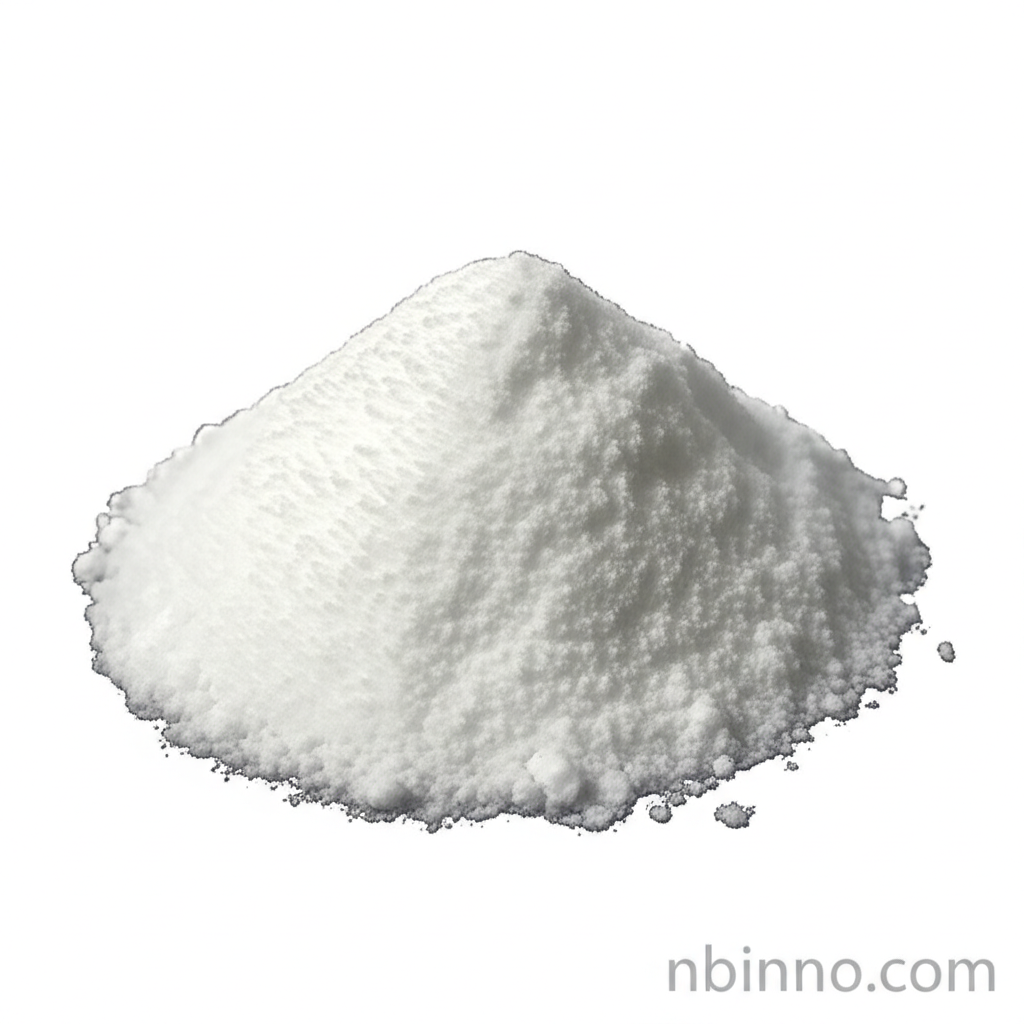Aminoacetonitrile Hydrochloride: A Key Intermediate in Chemical Synthesis
Discover the versatility of Aminoacetonitrile Hydrochloride in pharmaceutical and organic synthesis applications.
Get a Quote & SampleProduct Core Value

Aminoacetonitrile Hydrochloride
Aminoacetonitrile Hydrochloride (CAS 6011-14-9) is a vital organic intermediate renowned for its role in the synthesis of complex molecules. It functions as a fundamental building block in creating advanced pharmaceuticals and specialized organic compounds, underscoring its importance in the chemical industry.
- Unlock advancements in drug discovery by utilizing this essential pharmaceutical intermediate.
- Explore novel pathways in organic synthesis with a reliable raw material.
- Leverage the unique chemical properties of glycinonitrile hydrochloride for your research.
- Understand the critical applications of aminoacetonitrile hcl in modern chemical processes.
Key Advantages
High Purity and Stability
Ensuring high purity levels, Aminoacetonitrile Hydrochloride provides consistent results, crucial for sensitive organic synthesis reactions and pharmaceutical formulations.
Versatile Chemical Reactivity
The compound's structure, featuring both amine and nitrile groups, makes it a versatile reagent for various chemical transformations, aiding in the creation of complex molecular architectures.
Essential for Pharmaceutical Development
This compound is indispensable as a pharmaceutical intermediate, facilitating the synthesis of active pharmaceutical ingredients (APIs) and contributing to the development of life-saving medications.
Key Applications
Pharmaceutical Intermediates
As a critical pharmaceutical intermediate, it is used in the synthesis of various drug molecules, contributing to the development of new therapies. Exploring the uses of CAS 6011-14-9 is key here.
Organic Synthesis
Aminoacetonitrile Hydrochloride serves as a fundamental organic synthesis raw material, enabling chemists to build complex organic structures efficiently.
Biochemical Research
Its role in synthesizing dipeptide nitriles as cathepsin S inhibitors highlights its importance in advanced biochemical research and drug discovery.
Agrochemicals Development
The compound also finds applications in the development of agrochemicals, further demonstrating its broad utility across scientific disciplines.
